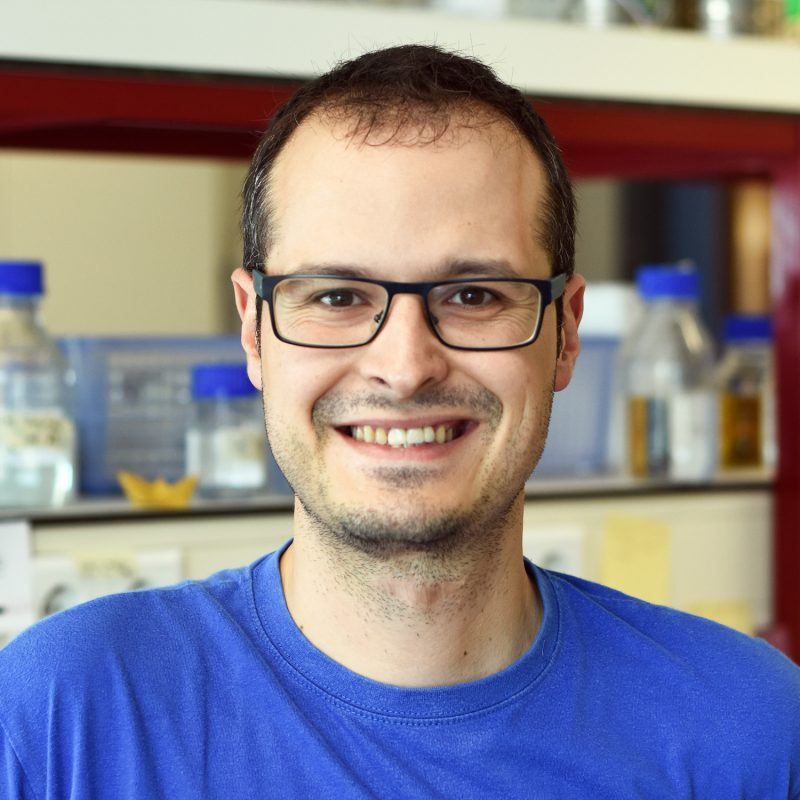- - English

| Position | Postdoc |
| Research fields |
Role: Postdoctoral researcher
Expertise: Autophagy, mitophagy, autophagosome, yeast, neurodegenerative diseases
Experience: Rubén Gómez Sánchez studied Biochemistry at the University of Extremadura (Spain), and he obtained his PhD in Biomedicine in 2013, at the Department of Biochemistry and Molecular Biology and Genetics of the same institution, in the laboratory of Dr. José Manuel Fuentes Rodríguez. His investigations were mostly focused on the role of the PINK1 protein in sensing mitochondrial damage and in mediating the elimination of dysfunctional mitochondria by autophagy. During his PhD studies, awarded by a short-term fellowship, he carried out a research stay in the laboratory of Prof. Anthony H. V. Schapira, at the Institute of Neurology of the University College London (United Kingdom). During his last period in the PhD laboratory, as a postdoctoral fellow funded by a 6-months postdoctoral grant, he studied the role of PINK1 in autophagy and mitophagy during the PD etiopathogenesis,
In 2014, he joined the laboratory of Prof. Fulvio Reggiori at the Department of Cell Biology of the University Medical Center Utrecht (The Netherlands). There, supported by Ramón Areces Foundation and Marie Skłodowska-Curie Actions (MSCA-IF) postdoctoral fellowships, he started working on the molecular role of the Atg proteins during the autophagosome formation, using Saccharomyces cerevisiae as a cell model. In 2015, he moved at the Department of Cell Biology of the University Medical Center Groningen to continue his research on the autophagy pathway in yeast.
He is a member of the Spanish Society for Biochemistry and Molecular Biology (SEBBM), the Nordic Autophagy Society (NAS) and the Spanish Society of Autophagy (SEFAGIA).
On-going projects: Autophagy is a highly conserved process for degrading and recycling unwanted and potentially toxic cellular components. The relevance of autophagy in human pathologies has emerged with the discovery that an impairment or a defect in autophagy can cause diseases such as cancer or neurodegenerative disorders. Crucially, modulation of autophagy has been shown that can be used as a therapy to delay the onset of specific diseases, including muscular dystrophies and neurodegeneration.
Autophagy is regulated by specific players, the so-called Atg proteins but despite their relevance, their precise molecular role is still largely unknown. The goal of his research is to study how these players control this pathway. For this purpose, he takes advantage of the budding yeast as a model system, because of its amenability to genetic and biochemical approaches. Importantly, autophagy operates in yeast almost identically as in human cells. The ultimate aim of his investigations is to provide the knowledge that will help to manipulate autophagy to the benefit of human health.
Research group: Kampinga group
Group leader: Harrie Kampinga
Contact details:

Update your browser to view this website correctly. Update my browser now